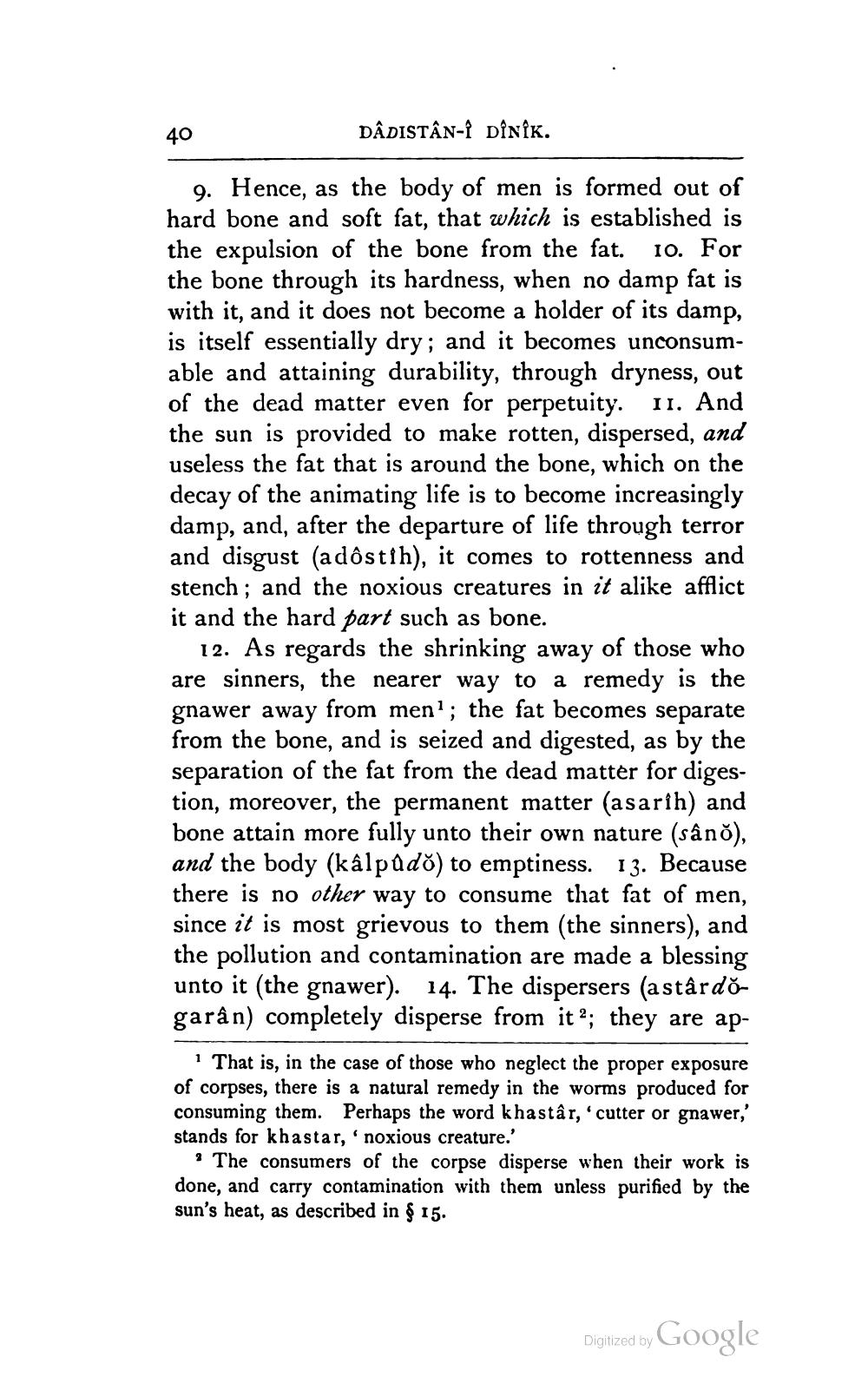________________
DÂDISTÂN-Î DÎNÎK.
9. Hence, as the body of men is formed out of hard bone and soft fat, that which is established is the expulsion of the bone from the fat. 10. For the bone through its hardness, when no damp fat is with it, and it does not become a holder of its damp, is itself essentially dry; and it becomes unconsumable and attaining durability, through dryness, out of the dead matter even for perpetuity. 11. And the sun is provided to make rotten, dispersed, and useless the fat that is around the bone, which on the decay of the animating life is to become increasingly damp, and, after the departure of life through terror and disgust (a dôstih), it comes to rottenness and stench; and the noxious creatures in it alike afflict it and the hard part such as bone.
12. As regards the shrinking away of those who are sinners, the nearer way to a remedy is the gnawer away from men"; the fat becomes separate from the bone, and is seized and digested, as by the separation of the fat from the dead matter for digestion, moreover, the permanent matter (asarih) and bone attain more fully unto their own nature (sâno), and the body (kâlpado) to emptiness. 13. Because there is no other way to consume that fat of men, since it is most grievous to them (the sinners), and the pollution and contamination are made a blessing unto it (the gnawer). 14. The dispersers (a stârdăgarân) completely disperse from it a; they are ap
1 That is, in the case of those who neglect the proper exposure of corpses, there is a natural remedy in the worms produced for consuming them. Perhaps the word khastâr, cutter or gnawer,' stands for khastar, 'noxious creature.'
3 The consumers of the corpse disperse when their work is done, and carry contamination with them unless purified by the sun's heat, as described in $ 15.
Digitized by Google




